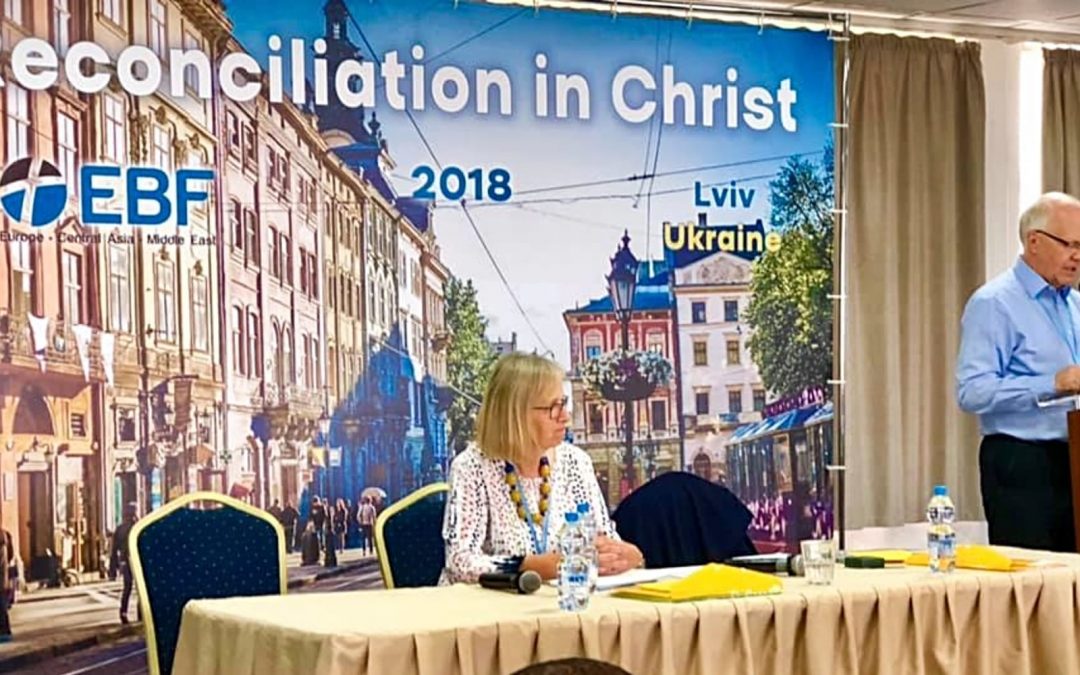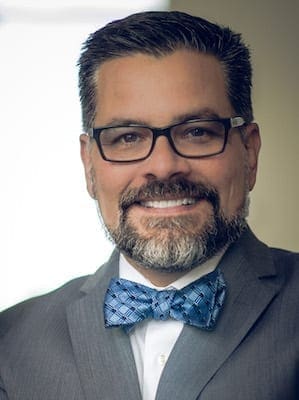I attended the European Baptist Federation (EBF) meeting in Lviv, Ukraine, last week.
EthicsDaily and EBF are exploring ways we can collaborate and share resources for the greater Baptist movement around the world.
At the invitation of EBF General Secretary Tony Peck, I arrived at the annual council meeting intrigued and eager to learn from my European colleagues. I was not disappointed.
The week began with inspiring worship at Central Baptist Church. Worshipping in a 500-year-old church, listening to multiple languages around me and basking in the beautiful music of the choir, my heart was full even before the first gavel fell to begin the formal council meeting.
It became very apparent as the meeting progressed that European Baptists are a diverse lot. However, they have discovered that their diversity – while challenging at times – is actually a strength.
When your Christian tradition is a small minority in the region, you tend to crave fellowship and partners. Therefore, the spirit and practice of collegiality and collaboration are essential.
Four significant elements stood out for me at the meeting. While the entire meeting was inspirational, these four moments offered a clearer understanding of European Baptists as well as a model for collaboration and civility.
- European Baptists lean into their diversity.
Western and Eastern Europe have different cultures, with different perspectives on the Bible and the practice of faith.
However, instead of shying away from those differences, European Baptists embrace them, attempting to understand each other and forge a path forward.
As I sat with one European Baptist leader, they recounted the conversation they were having about same-sex marriage.
While churches on both sides of the conversation hold firm to their positions, they also understand the importance of solidarity in a diverse community.
The majority of congregations holding a traditional view of marriage have sought to maintain fellowship with the small number of churches who affirm same-sex marriage.
In other words, they value relationship over doctrinal dispute.
- European Baptists work from a minority position.
Baptists make up less than 0.01 percent of the Christians in Europe. When your tradition is a minority, it influences almost every fiber of your faith and practice.
European Baptists place a high priority on evangelism. Many of the stories and testimonies at the council revolved around life-transforming moments when people made professions of faith changing the course of their lives.
In the U.S., there has been a significant decline in evangelism – often a reaction against high-pressured evangelism tactics by conservative evangelicals.
However, after my time with my European brothers and sisters, I am convinced that moderate and progressive Christians need to recapture the practice of evangelism as a transformative tool for individuals and communities.
- European Baptists understand the meaning and practice of collegiality and collaboration.
Again, when your tradition is a minority and a mosaic of diversity, then collegiality and collaboration are essential for community and productivity.
There was no better example of EBF’s collegiality and willingness to compromise than in their conversations concerning two resolutions.
The first resolution addressed the growing migration crisis unfolding all across Europe.
While there were different positions on the issue, they all agreed that the best way forward was to pass a resolution promoting a Christian spirit of welcoming the stranger and practicing a spirit of hospitality.
The second motion was more complex. Working from the resolution passed by the Baptist World Alliance (BWA) in 2018 at Zurich, Switzerland, they wanted to make a statement regarding the ongoing conflict in Eastern Ukraine.
In the BWA resolution, it mentioned that there were areas of Ukraine that were considered “controlled” by Russia.
The Russian Union was concerned about mentioning Russia in this way, afraid of potential backlash.
After many listening sessions and conversations, the form of the resolution was changed to address the crisis as experienced by Ukraine but also respect Russian concerns.
- European Baptists invest heavily in their future.
EBF’s “Transform” program invites emerging Baptist leaders to the council meeting.
Making a multi-year commitment, these emerging leaders make connections with their own generational colleagues across the continent and spend quality time with more experienced leaders.
During the testimonial time, these young Baptists demonstrated the bright future of EBF and their ministries.
One such “Transformer” is Rodrigo Assis de Silva, a Brazilian who is ministering in Germany.
As the refugee crisis continues to escalate all across Europe and the Middle East, Silva has found a very practical and tangible way to bring mercy and integrity to refugee women.
He is working with a partner designing handmade menstrual pads that can be distributed and reused.
They are currently in the design phase as they attempt to find the best materials, but they are confident they are close to a breakthrough.
Examples like Silva are the reason European Baptists will be a leader in entrepreneurial missions and ministry.
Just as Jesus “saw” the blind, poor and sick during his day, the next generations of Baptists all across the world are doing the same.
I head back to the U.S. with my heart and soul full. I love the fact I am part of a larger Baptist community that spans across the globe.
My time with European Baptists was delightful; watching them navigate their diversity was inspiring.
EthicsDaily is working hard to offer perspectives from global Baptists. As we continue to add new columnists and share global insights about the most critical issues facing Baptists around the world, the stronger the Baptist witness becomes, the more assured I am that the light of Christ is shining brightly.
Editor’s note: Photos from the EBF 2018 council meeting are available here.


